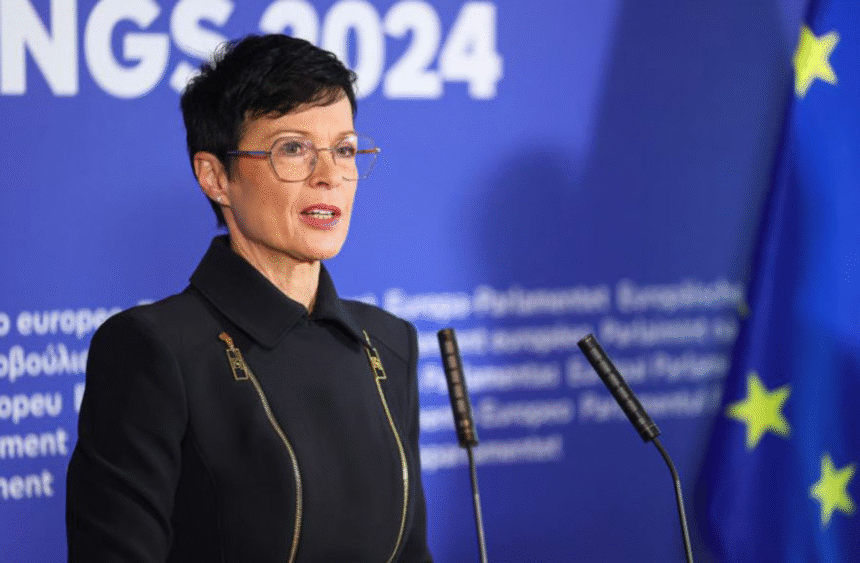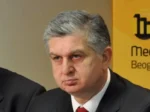European Union Enlargement Commissioner Marta Kos stated on Tuesday that Kosovo’s path toward EU membership depends primarily on the normalization of relations with Serbia, not through unilateral decisions.
Speaking during a session of the European Parliament’s Foreign Affairs Committee, Kos reaffirmed that the European Commission is ready to assess Kosovo’s application for EU membership, but only after receiving a formal mandate from the Council of the EU.
Kosovo submitted its EU membership application on December 15, 2022, yet the request remains unreviewed, making Kosovo the only Western Balkan country still without official candidate status.
Call for Functional Institutions Amid Political Deadlock
Kos also urged the swift formation of Kosovo’s new government, following the February 9 parliamentary elections, which have yet to yield a functioning legislature.
On June 2, Kosovo’s Parliament failed to convene for the 25th time, preventing the constitution of new government bodies. The Vetevendosje Movement (LVV), which won the most votes, has been unable to reach an agreement with opposition parties on electing a parliamentary speaker. The opposition rejected LVV’s nominee Albulena Haxhiu, citing her as a divisive figure.
Kos stressed the importance of institutional stability:
“A functional government and parliament are essential for Kosovo to benefit from the EU’s growth and reform agenda.”
Only after the Assembly is constituted can a new government be officially formed.
EU Integration Outlook Across the Western Balkans
During the committee session, which also addressed the EU’s enlargement policy, the Ukraine crisis, and neighborhood strategy, Kos gave an overview of regional progress:
- Albania: Accession negotiations have begun across 24 chapters.
- Serbia: Must resume reforms and rebuild public trust. Kos warned that President Aleksandar Vučić’s recent visit to Moscow undermines Serbia’s EU path.
- Bosnia and Herzegovina: Still trapped in political gridlock, though EU doors remain open.
- Montenegro: Advancing rapidly, having closed six chapters with expectations of concluding negotiations in 2026.
- North Macedonia: Must pass constitutional amendments to launch formal talks. Kos offered to mediate in talks with Bulgaria over bilateral disputes.
- Georgia: Risks straying from EU values and undermining democracy.
- Ukraine and Moldova: Ready to begin negotiations—now waiting on the European Council’s green light.
A Broader Vision for EU Expansion
Commissioner Kos stressed that enlargement is not just procedural—it’s a strategic necessity:
“Enlargement is about uniting Europe. It’s both a moral obligation and a prerequisite for a stronger, safer continent.”
She added that the European Commission is reviewing ways to streamline accession procedures, especially to prevent bilateral issues from stalling enlargement—critical in today’s geopolitical climate.
What’s Next for Kosovo?
Kosovo’s progress toward EU membership will likely remain stalled without a government in place and a constructive approach to dialogue with Serbia. The message from Brussels is clear: institutional stability and diplomatic engagement are non-negotiable.







